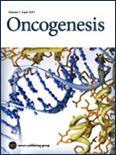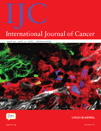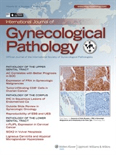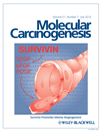
Brain Tumor Pathology
Scope & Guideline
Exploring innovative solutions for brain tumor challenges.
Introduction
Aims and Scopes
- Pathological and Molecular Characterization:
The journal emphasizes the importance of understanding the histopathological and molecular features of brain tumors, including genetic mutations, protein expressions, and their implications for diagnosis and treatment. - Clinical Insights and Case Studies:
It includes extensive case reports and reviews that provide clinical insights into rare and complex brain tumor presentations, thereby enhancing the understanding of these tumors in a clinical context. - Translational Research:
A significant focus is placed on translational research that bridges laboratory findings with clinical applications, particularly in developing new diagnostic tools and therapeutic strategies. - Emerging Tumor Types and Classifications:
The journal is dedicated to exploring emerging tumor types and evolving classification systems, aligning with the latest updates from international guidelines such as the WHO classification. - Immunological and Microenvironmental Studies:
Research on the tumor microenvironment and the role of immune cells in brain tumors is a core area, highlighting the interplay between tumors and the immune system.
Trending and Emerging
- Genomic and Molecular Profiling:
There is an increasing trend towards comprehensive genomic and molecular profiling of brain tumors, which aids in understanding tumor biology, guiding treatment decisions, and improving patient outcomes. - Liquid Biopsy Techniques:
The emergence of liquid biopsy as a non-invasive diagnostic tool is gaining traction, providing valuable insights into tumor dynamics and potential therapeutic responses. - Immunotherapy and Immune Profiling:
Research focusing on immunotherapy and the profiling of immune responses within the tumor microenvironment is expanding, highlighting the importance of immune interactions in tumor progression and treatment. - Novel Therapeutic Strategies:
The exploration of novel combination therapies and targeted treatments, particularly those integrating molecularly targeted agents and immunotherapy, is becoming increasingly prevalent. - Impact of Molecular Alterations on Treatment Outcomes:
There is a growing emphasis on understanding how specific molecular alterations influence treatment responses and prognostic outcomes, which is critical for personalized medicine.
Declining or Waning
- Traditional Histopathological Methods:
There seems to be a decreasing emphasis on traditional histopathological methods alone, as the field shifts towards more integrated approaches that combine molecular and genomic analyses for tumor classification and diagnosis. - Older Classification Systems:
The reliance on older classification systems is diminishing, especially with the introduction of newer WHO classifications and molecular subtyping methods that better reflect the complexities of brain tumors. - Single Modality Treatment Approaches:
There is a noticeable reduction in research focusing solely on single modality treatment approaches, as the field increasingly favors combination therapies and personalized medicine strategies. - Focus on Low-Grade Tumors:
Research on low-grade tumors appears to be less prominent compared to high-grade tumors, as the latter often attract more attention due to their aggressive nature and immediate clinical relevance.
Similar Journals

NEURO-ONCOLOGY
Advancing the Frontiers of Brain Tumor ResearchNEURO-ONCOLOGY, a leading journal published by OXFORD UNIVERSIT PRESS INC, is at the forefront of research in the intersection of neurology and oncology, with contributions spanning from 1999 to 2024. With a recognized impact reflected in its strong ranking, holding Q1 status in Cancer Research, Neurology (Clinical), and Oncology categories, NEURO-ONCOLOGY provides a vital platform for the dissemination of groundbreaking studies and advancements in brain tumor research and treatment. The journal ranks impressively within the 99th percentile in clinical neurology and 96th percentile in oncology, highlighting its significance and influence within the field. Accessible through institutional subscriptions, it serves as a valuable resource for researchers, healthcare professionals, and students seeking to stay informed of the latest developments, therapeutic strategies, and scientific discussions in neuro-oncology.

Oncogenesis
Empowering researchers with open access to vital findings.Oncogenesis is a prestigious open access journal, published by SpringerNature, dedicated to advancing our understanding of cancer biology and molecular mechanisms of oncogenesis. Since its inception in 2012, this journal has quickly established itself as a leading platform for innovative research, being ranked in the Q1 quartile in both Cancer Research and Molecular Biology categories for 2023. With an admirable impact factor that reflects its exceptional quality, Oncogenesis is indexed in Scopus, holding notable rankings in both Molecular Biology and Cancer Research, placing in the 87th and 83rd percentile respectively. The journal not only facilitates the dissemination of groundbreaking research but also encourages collaboration among scientists and healthcare professionals across the globe. By offering open access to its articles, Oncogenesis ensures that vital findings reach a diverse audience, fostering a deeper dialogue and understanding in the fight against cancer. Based in the United States but with a global reach, the journal remains committed to publishing high-impact studies that contribute to the advancement of knowledge in the realms of oncology, biochemistry, and genetics.

Head & Neck Pathology
Exploring the Complexities of Head & Neck DiseasesHead & Neck Pathology is a leading journal dedicated to advancing the study of pathologies affecting the head and neck region, published by Springer. With an ISSN of 1936-055X and E-ISSN of 1936-0568, this journal serves as a vital resource for the dissemination of research in oncology, otorhinolaryngology, and pathology, achieving impressive rankings of Q2 in Oncology and Q1 in both Otorhinolaryngology and Pathology & Forensic Medicine in 2023. Since its inception in 2007, Head & Neck Pathology has continued to provide a platform for innovative research findings, case studies, and reviews, fostering a deeper understanding of head and neck diseases. The journal's commitment to excellence is reflected in its rigorous peer-review process and accessibility through various academic platforms. Researchers, clinicians, and students will find valuable insights and knowledge that can enhance clinical practice and improve patient outcomes in the dynamic field of head and neck pathology.

INTERNATIONAL JOURNAL OF CANCER
Advancing cancer research for a healthier tomorrow.INTERNATIONAL JOURNAL OF CANCER, published by Wiley, stands as a premier platform for the dissemination of cutting-edge research in the fields of cancer research and oncology. With an impressive impact factor reflecting its rigorous peer-review process and significant contribution to the scientific community, this journal is categorized in Q1 for both Cancer Research and Oncology as of 2023. It boasts notable rankings, being placed 38th among 404 journals in Medicine - Oncology and 32nd among 230 in Biochemistry, Genetics, and Molecular Biology - Cancer Research, positioning it within the 90th and 86th percentiles, respectively. Since its inception in 1966 and continuing to 2024, the journal has played a pivotal role in advancing our understanding of cancer biology, treatment modalities, and innovative therapeutic approaches. While it operates under a subscription model, the journal is committed to making valuable research accessible to a broader scientific audience. Researchers, professionals, and students alike will find the INTERNATIONAL JOURNAL OF CANCER an essential resource for staying abreast of the latest advancements in cancer science.

Molecular & Cellular Oncology
Exploring the cellular mechanisms of oncogenesis.Molecular & Cellular Oncology, published by Taylor & Francis Inc, is a vital academic journal dedicated to the exploration of cancer biology through the lens of molecular and cellular mechanisms. Since its inception in 2014, the journal has played a crucial role in disseminating innovative research findings that address the fundamental aspects of cancer research and molecular medicine. With its current ranking in Scopus placing it in the Q3 quartile for both Cancer Research and Molecular Medicine, the journal provides a platform for groundbreaking studies that push the boundaries of our understanding of oncogenesis and therapeutic interventions. Although the journal operates under a subscription model, its dedication to high-quality peer-reviewed research makes it an essential resource for researchers, professionals, and students aiming to contribute to or stay updated in the rapidly evolving field of oncology. As we approach the culmination of its converged years in 2024, Molecular & Cellular Oncology aims to continue fostering collaborations and insights that advance cancer research on a global scale.

Turkish Journal of Pathology
Fostering Collaboration in Pathology ResearchTurkish Journal of Pathology, published by the Federation Turkish Pathology Society, stands as a vital platform for disseminating high-quality research in the field of pathology and forensic medicine. With an ISSN of 1018-5615 and an E-ISSN of 1309-5730, this journal has been an open-access publication since 2013, ensuring that cutting-edge findings are readily available to the global community. Based in Turkey, it aims to contribute significantly to the advancement of pathology as it converges from 2010 to 2024, currently holding a Q3 quartile ranking in its category according to 2023 metrics. As it ranks #129 out of 208 in the Scopus database for Medicine, Pathology, and Forensic Medicine, it offers researchers, professionals, and students invaluable insights and innovative studies that address critical developments in the field. The Turkish Journal of Pathology fosters collaboration and knowledge-sharing, making it an essential resource for anyone involved in pathology research and practice.

INTERNATIONAL JOURNAL OF GYNECOLOGICAL PATHOLOGY
Transforming insights into gynecological care.INTERNATIONAL JOURNAL OF GYNECOLOGICAL PATHOLOGY, published by Lippincott Williams & Wilkins, is a premier academic journal dedicated to the intricate field of gynecological pathology, serving a critical role in advancing the understanding of diseases related to women's reproductive health. Since its inception in 1982, this journal has established itself as a key resource for researchers, clinicians, and students, with a current impact factor that reflects its esteemed reputation; it is ranked in the Q2 category for both Obstetrics and Gynecology, as well as Pathology and Forensic Medicine, signifying its prominence in academic circles. The journal's scope encompasses a wide array of topics, including histopathological findings, diagnostic methodologies, and evolving therapeutic strategies, all pivotal to enhancing patient care. With a steadfast commitment to disseminating high-quality research until the projected year of 2024, the INTERNATIONAL JOURNAL OF GYNECOLOGICAL PATHOLOGY is an essential read for those looking to stay abreast of the latest developments in this vital area of medical science.

CANCER CELL
Elevating Cancer Research to New HeightsCancer Cell, published by Cell Press, represents a pinnacle of research in the fields of cancer research, cell biology, and oncology. With an impressive Impact Factor and ranking as Q1 in prestigious categories for both 2023 and previous years, this journal stands out as a vital resource for professionals and scholars dedicated to understanding the molecular underpinnings of cancer. Operating from Cambridge, MA, Cancer Cell has been an essential platform for innovative studies since its inception in 2002. Although it is not an Open Access journal, its rigorous peer-review process ensures that only the highest quality research is disseminated to the scientific community. Readers can expect to find a wealth of knowledge ranging from cutting-edge therapies to insights into tumor biology, thereby contributing significantly to the advancement of oncology. With rankings placing it among the top echelons of related fields—#2 in Cancer Research and #6 in Oncology—Cancer Cell is an indispensable reference for anyone committed to the fight against cancer.

CANCER SCIENCE
Connecting researchers and clinicians to transform cancer care.Cancer Science, an esteemed journal published by Wiley, stands at the forefront of oncology research, boasting an impressive impact factor and a classification in the Q1 category for its contributions in Cancer Research, Medicine, and Oncology as of 2023. Since its inception in 2003 and transitioning to an Open Access model in 2014, the journal has facilitated global dissemination of critical research findings, ensuring that vital information remains accessible to researchers, clinicians, and students alike. With its comprehensive scope covering cutting-edge discoveries in cancer biochemistry, genetics, and molecular biology, Cancer Science is recognized for its rigorous peer-review process and significant contributions to advancing our understanding of cancer. The journal, located at 111 River St, Hoboken, NJ, is an essential resource for anyone dedicated to improving treatment outcomes and pushing the boundaries of cancer research.

MOLECULAR CARCINOGENESIS
Pioneering Research on Cancer's Molecular MechanismsMOLECULAR CARCINOGENESIS is a prestigious academic journal published by Wiley, dedicated to advancing the understanding of the molecular basis of cancer. Established in 1988, this journal serves as a vital resource for researchers and professionals in the fields of cancer research and molecular biology. With an impressive impact factor reflecting its significance in the Q2 category for both Cancer Research and Molecular Biology, it stands out for its high-quality, peer-reviewed articles that explore innovative research, novel findings, and emerging trends in carcinogenesis. Although the journal currently does not offer open access options, it remains accessible to the academic community through numerous institutional subscriptions. Positioned in the United States and contributing to the global discourse on cancer research, MOLECULAR CARCINOGENESIS is an essential publication for anyone engaged in the study of cancer at the molecular level.